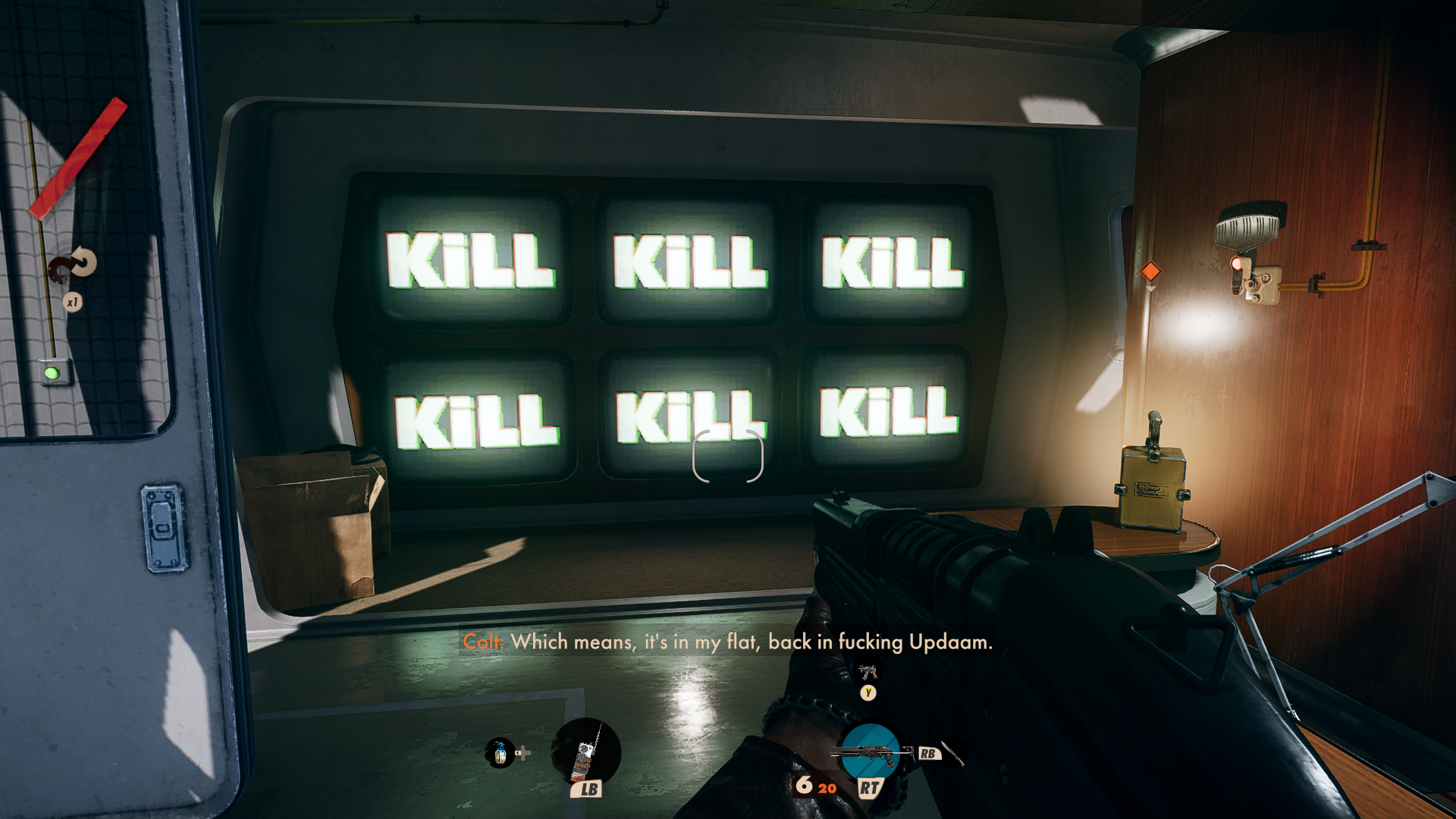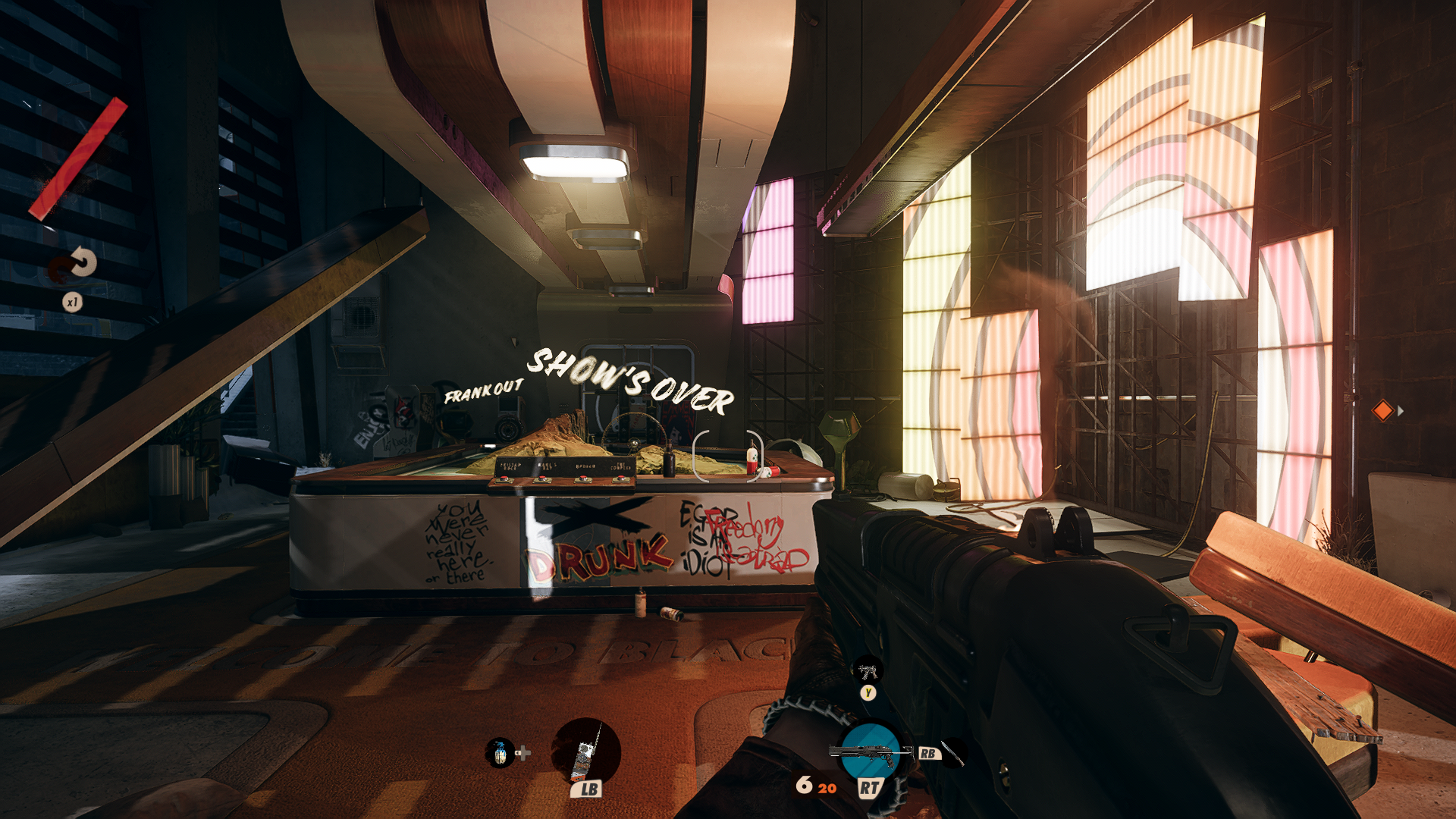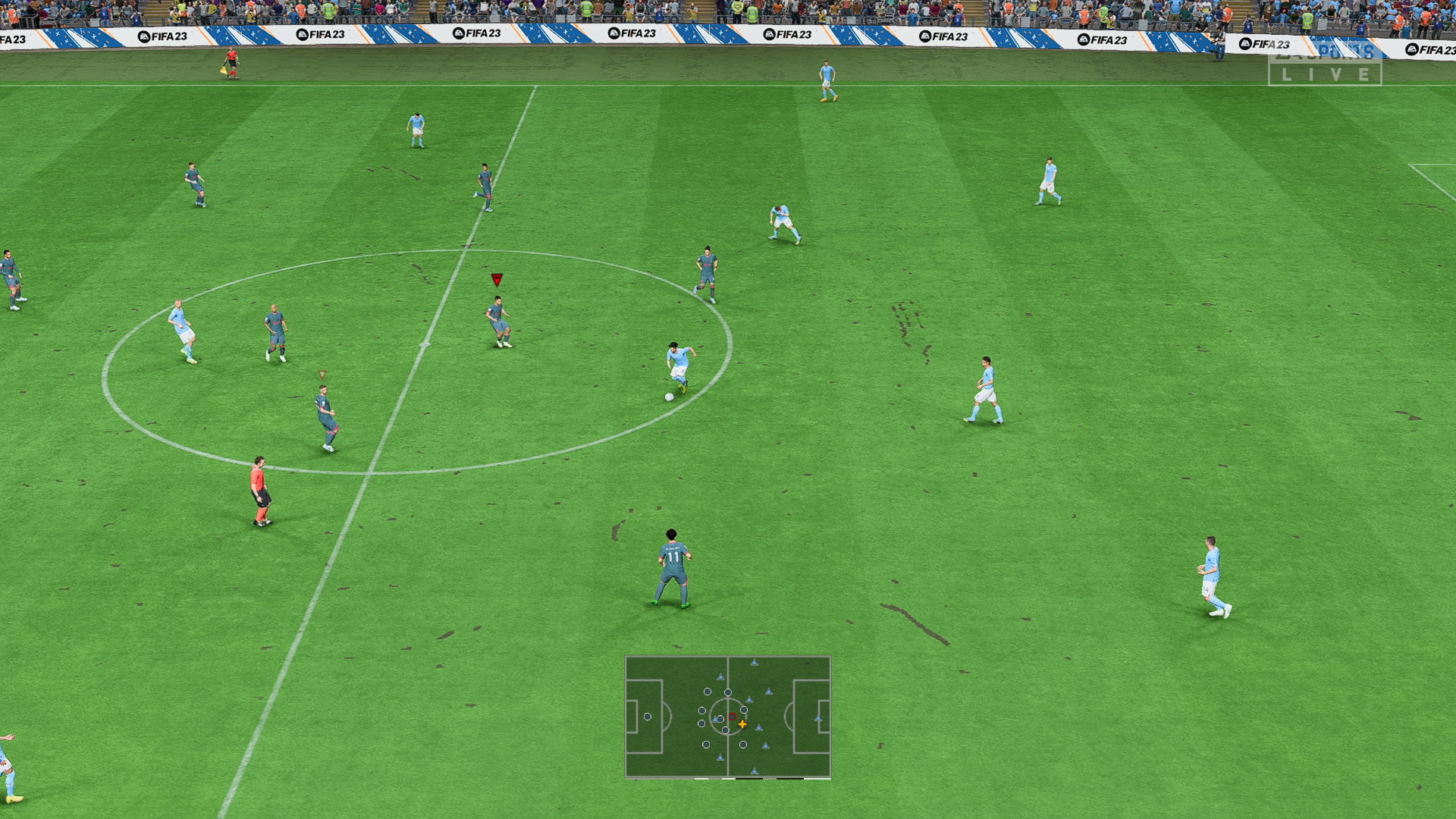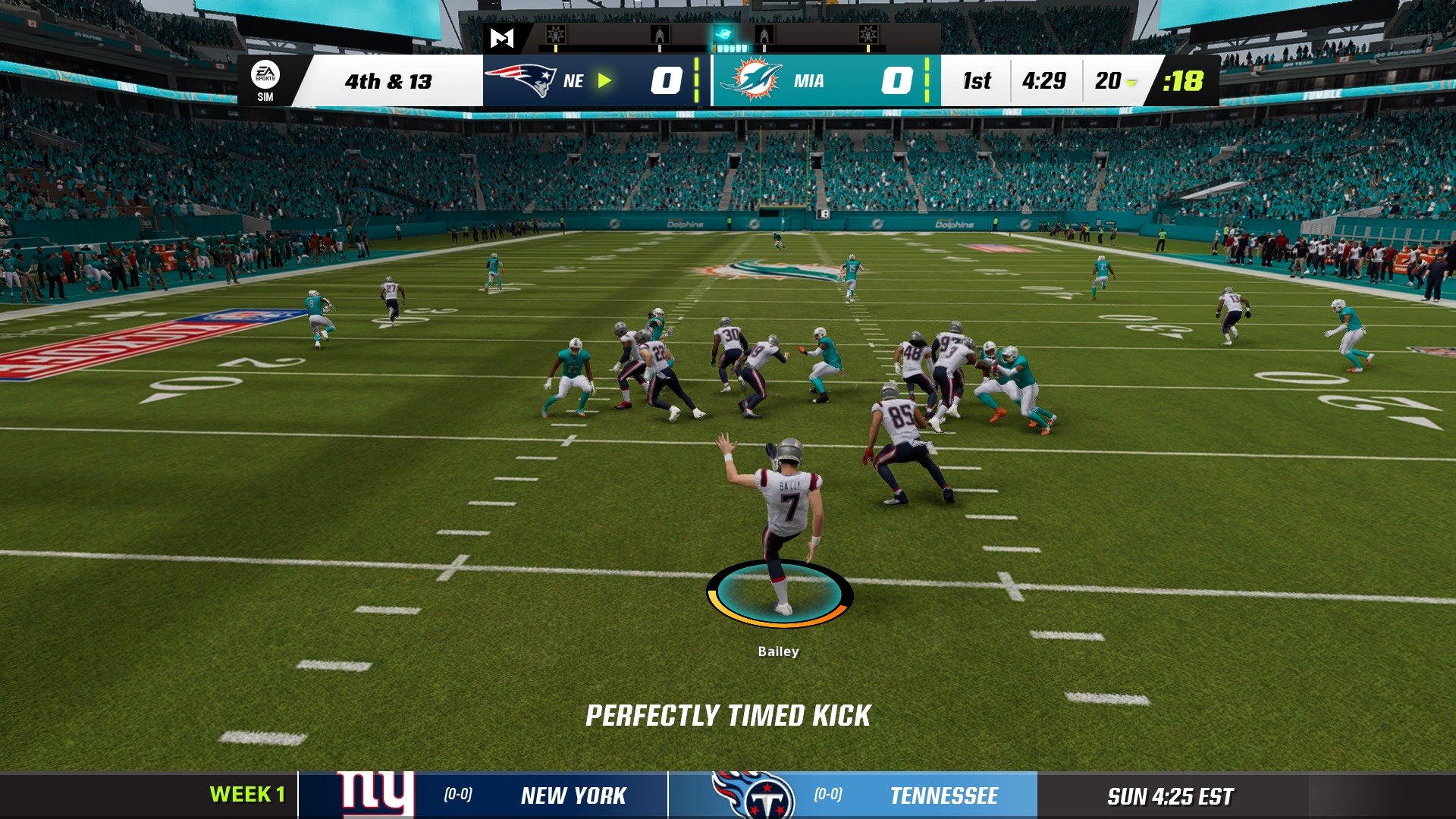An Unstable Peace
I agree with Xbox chief Phil Spencer and the Internet’s more level-headed industry watchers: there is no longer a ‘console war’, but it’s totally plausible there’s an unstable console peace.
Because I’m human, I like to think of myself as somewhat clairvoyant. The past couple months and also the next few seem highly relevant to the future of how we consume video games, and where. Microsoft are acting coy about whether Call of Duty, the crown jewel of an historic takeover play for Activation Blizzard, will appear on PlayStation platforms beyond three more editions. Electronic Arts, already a much maligned sports brand, and a long-time, lukewarm custodian of Star Wars IP, has lost even more sense of its own gravitas now that the Battlefield franchise no longer constitutes appointment gaming.
Deathloop was almost unanimously declared 2021’s game-of-the-year by the gaming press, and has just arrived ‘for free’ on Xbox Game Pass: Microsoft’s spectacular effort to apply the Netflix model to video game software. Another God of War sequel will undoubtedly shift many units, and many PS5s, this holiday season. And then there’s Fortnite, because everyone wants what publisher Epic has: a perfect, insatiable, omnipresent marketplace, where you can launch rockets at will.
I have recovered sufficiently from the vertigo of experiencing next-generation Madden for the first time, to venture more than one observation.
*
Deathloop, again and again.
Some disclosure: I’m a first-person shooter guy, and I’ve waited a full year for the opportunity to run Deathloop through its paces. For a solid few months back there, this and the bubblegum pyrotechnics of Ratchet & Clank were my primary reasons for wanting to purchase a PS5 before I purchase a car, or a house, or pay somebody’s bride price. It’s not insignificant that Microsoft gets to say I didn’t have to switch platforms, pay 50 bucks at least, and there Deathloop was: ready for download, because I happen to subscribe to Game Pass.
I am made to understand by PlayStation cult members — we all know a handful — that the game has also made its way onto PlayStation Plus; but the conditionality of it matters. Xbox retains its championship belt as the brand that keeps looking out for customers; that undertakes violent takeovers, like the Activision and Bethesda deals, so that it can make games as affordable and available as possible. Deathloop is the product of a strange but amicable custody agreement, in which one console manufacturer (amid the process of studio takeover) allowed a title to exist as a ‘timed exclusive’ on a rival system. That the title was Deathloop … matters.
If this were any other shooter, it’d be off my library by now. As is my concern with the upcoming vampire slayfest RedFall, Deathloop lacks a certain crunch when you need to fire a bunch of rounds into spaces overpopulated by enemies. The animations are gimmicky, the guns feel silly, and everybody just evaporates into the great beyond — including you, except you can still walk past a hologram of your soul when your checkpoint reloads.
Deathloop is … fucking gorgeous.
The reasons you love Call of Duty, I learned immediately, aren’t the reasons you’ll love Deathloop. It looks and sounds gorgeous, sure, but really it’s quite easeful in its execution of a postmodern dystopia caused by someone messing around with time on what might have been an overtly hipster island. This island’s inhabitants all seem to have been rendered dangerously paranoid by the distortion event, which is present-continuous when you enter it, and so there’s a bounty on your ass from the jump. Your perspective is narrated by a confused but resilient hero, his train-of-thought disrupted by either spookily atmospheric sticky notes or an ex-girlfriend who takes his life in act one.
Just as impressive as the psychedelic manner in which Deathloop toys with colour — it bursts out of hot springs, paintings, security lasers, street corners — is just how much its twisted environment interacts with you. It’s been about two hours of gameplay, and I’m drawn back to this game the way I am to a provocative fantasy novel. Every nook and cranny of its terrain is fucking with you somehow, and that makes it an absolute fever dream to unpack.
I purchased an Xbox Series S last week, which if you know your stuff represents only the tiniest of upgrades. But get this: I pulled the machine out of its box, jumped online, and immediately accessed a triple-A game assembled with real guile, care, and craft. That matters.
EA Sports: It used to be in the game …
FIFA 23: amazing multiplayer experience — highly questionable single-player vibes …
I waited all weekend for the Deathloop download to notify me of its completion, by watching way too much NFL and fiddling with a pair of EA Sports trials. It’s a pretty major year for that publisher. Next year their soccer flagship won’t release under the FIFA banner, because they couldn’t agree on how to split all the money (I totally blame FIFA for this one). Elsewhere, the Madden franchise has had to commemorate the now late coach and commentator after whom it was named, with so very slight and not altogether welcome gameplay enhancements.
I watched but also ignored all the reviews, which were once again ‘meh’, because I wanted to see for myself. I was encouraged by a newfound tightness to FIFA on next-generation machinery, having sampled some multiplayer action on someone’s PS5. Against digital opposition, EA’s attempts to replicate human error on the field of play aren’t quite as cute. Passes constantly roll astray, teammates almost never slip into open spaces (at the crucial moments) during build-up play, and damn near every shot on goal feels laborious and limited by Timed Finishing, even after you turn off Timed Finishing. (A function, to boot, no gamer I know personally actually uses.)
There’s also no clear and certain button with which to defend capably, because the B button gives away penalties and the A button is a timid poke at nothing. Even on next generation consoles, FIFA does such an awful job of letting soccer fans play soccer, and rewards only gamers who put in the overtime to master and bootleg the algorithm. Without a competent rival to turn to (Pro Evolution Soccer was consistently a quite magical football experience, before it went free-to-play and basically broke itself), gamers will soon find themselves wondering why they bother purchasing sports games that just get harder and harder to enjoy — if only because their sequences of play feel less and less like the real thing.
Madden 23 zips and bangs at a dizzying pace on next-gen hardware — or is this just me?
I am still suffering some slight jet-lag from what it’s like to play a Madden that moves this fast; where one’s quarterback play must make do in the pocket, in 3 seconds tops, and where the camera threatens to follow the zip of the football all the way to Canton, Ohio. Personally I’m more forgiving of sports, and sports games, whose sole obsession in life remains the creation of jeopardy. But we live in a world where the executive leadership(s) of two very large companies are bickering, passive and active aggressively, over who owes who what.
If Microsoft’s doubling down on the conventional path-to-glory — which has always been the outright purchase of plucky studios, in order for console makers to release their games exclusively — what does this mean for all the other titles that were hitherto subject to the unspoken laws of an unstable peace? To my mind, the battle for Call of Duty, whether or not Xbox has a moral obligation to allow people to play the series on platforms besides their own, sets up an imminent tussle for Electronic Arts.
The value of that brand will be in question if it whiffs on a host of upcoming Star Wars games, and a simply adequate Dead Space remake won’t garner enough goodwill to mask more ‘meh’ reviews of its sports titles. We know Microsoft will gladly piss another 50-billion or more into the water; we should suspect Sony would have to partner with an eager benefactor to make such a deal possible. Both Google and Apple make perfect sense. I think Google absolutely bites on any opportunity to resurrect its thinking behind Stadia, and cloud gaming therein, and Apple certainly wouldn’t mind having so much IP — God of War, Unchartered, Spider-Man, The Last of Us — to convert into mobile or streaming content. Maybe I’m projecting, but I think a phased bid for PlayStation begins by funding a move for Electronic Arts, and then reinventing how that particular company does things.
We live in such fascinating times.




